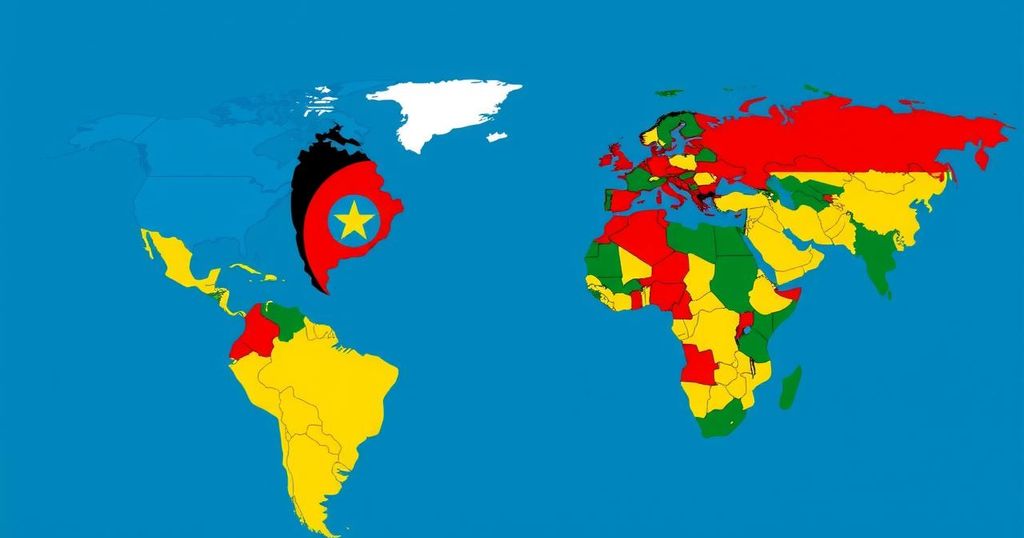Developing nations rejected the newly agreed $300 billion climate deal, deeming it inadequate. Key representatives from poorer countries expressed concern over the lack of sufficient funding to address climate crises. The agreement, reached in Azerbaijan, was marked by disappointment as many countries had sought at least $500 billion annually to tackle escalating climate challenges.
The recent climate agreement reached on Sunday has been met with significant disapproval from developing nations, who label the promised $300 billion annual contribution from wealthy countries as woefully inadequate. After extensive negotiations among nearly 200 countries in Azerbaijan, many delegates from poorer nations expressed that this financial commitment fails to address the escalating climate crisis. India’s representative condemned the agreement as containing a figure that is “abysmally poor,” while Sierra Leone’s climate minister criticized it for indicating a lack of commitment from developed nations. The sentiments of disappointment were echoed by various groups, including the Alliance of Small Island States, who articulated the insufficiency of the deal compared to their initial expectations of at least $500 billion annually.
UN climate chief Simon Stiell acknowledged the imperfections within the agreement, stating that none of the nations involved secured all of their demands. Secretary-General Antonio Guterres also expressed regret that the outcome fell short of more ambitious goals, urging governments to view the deal as a starting point. Despite the dissatisfaction, negotiators did not block the agreement, reflecting the gravity of the global climate situation. The final pact aims to provide significant funding to help developing nations adapt to climate changes, although many voices within these countries have vehemently labeled the agreement as a betrayal that undermines their long-term efforts to combat climate-related disasters.
The climate deal negotiated in Azerbaijan was designed to tackle financial commitments from developed countries to support developing nations in their efforts to combat climate change. This negotiation followed intense discussions about how much wealthier nations should contribute, given that they have been historically responsible for the majority of greenhouse gas emissions. The final agreement’s focus on a $300 billion annual pledge from developed nations is seen as a critical benchmark, yet many developing nations view it as insufficient, particularly when faced with the immediate dangers of climate change, including extreme weather events and rising sea levels. Poverty-stricken countries feel the impacts of climate change most acutely, and they argue that the funds provided are less than needed to address these challenges effectively.
In summary, the recent climate agreement has drawn widespread criticism from developing nations who regard the $300 billion annual commitment from wealthier countries as grossly inadequate in addressing the urgent realities of climate change. Key representatives voiced their frustrations, stating that this deal falls short of the billions required to facilitate significant environmental improvements and disaster preparedness. Moving forward, the sentiment among developing nations is one of mistrust towards wealthy countries, further complicating collaborative efforts to address climate change.
Original Source: www.fox28spokane.com






